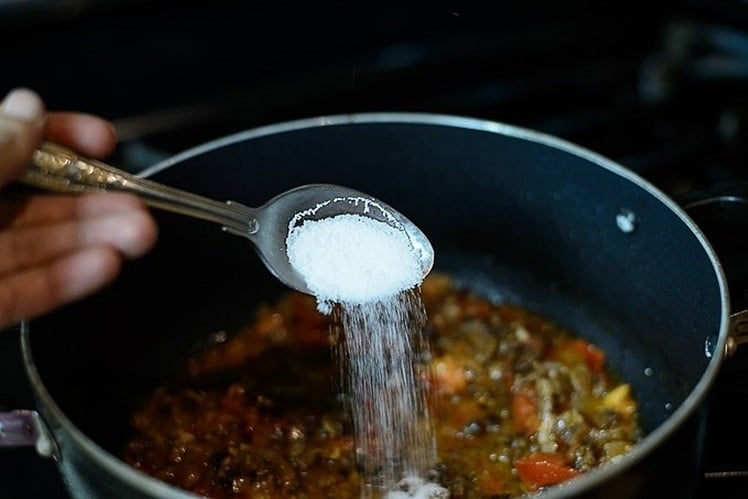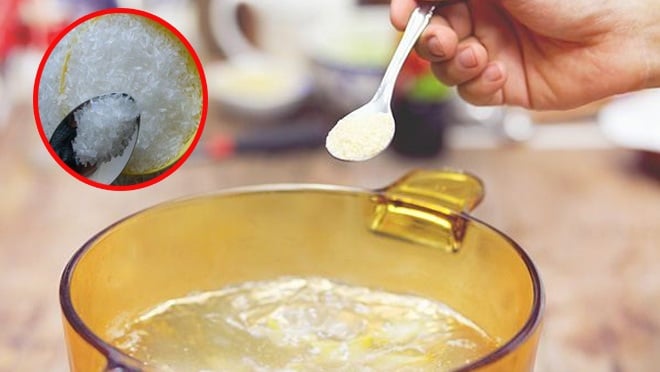There is a common belief that monosodium glutamate should only be added to cooled soups. Some even claim that it should not be added to boiling soups or liquids at 100°C as it may decompose into sodium polyglutamate.

The debate surrounding the potential toxicity of adding monosodium glutamate to hot soups.
So, is it safe to directly add monosodium glutamate to a boiling soup during cooking?
According to TS Vu Thi Tan, a chemistry lecturer at the Institute of Chemical Technology, Inorganic Materials Technology Department, Hanoi University of Technology:
“Scientists assert that monosodium glutamate only loses its seasoning effect and may undergo changes if burned continuously for 2 hours at temperatures above 300°C. They conducted experiments by burning monosodium glutamate while gradually increasing the temperature from low to high. When the temperature reached 300°C and was maintained for 2 hours, the monosodium glutamate turned into black derivatives and lost its seasoning properties.
Further research reveals that the decomposition temperature of monosodium glutamate is 232°C. So, what happens when it is added to a boiling soup at 100°C? Some soups containing oil or fat may have slightly higher temperatures, but they do not exceed 150°C.
The answer is: It is safe to do so because the temperature is still below the decomposition temperature of monosodium glutamate. For those who enjoy using monosodium glutamate, you can add it to your boiling soup without worrying about any adverse effects. Feel free to add it whenever you prefer.

What should we keep in mind when adding monosodium glutamate to soups?
Here are some important considerations when using monosodium glutamate:
-
Use in moderation: Monosodium glutamate is safe when used in reasonable amounts. The World Health Organization (WHO) and the US Food and Drug Administration (FDA) consider monosodium glutamate safe but advise against excessive consumption.
-
Sensitivity to monosodium glutamate: Some individuals may be sensitive to monosodium glutamate and experience symptoms such as headaches, nausea, dizziness, and a burning sensation, known as Chinese Restaurant Syndrome. If you exhibit these symptoms, reduce your monosodium glutamate intake or avoid it altogether.
-
Read product labels: Monosodium glutamate can be found in various processed foods like soups, sauces, snacks, and canned goods. Always read the labels to check for monosodium glutamate, especially if you’re trying to limit your consumption.
-
Incorporate a healthy diet: Instead of relying heavily on monosodium glutamate for flavor, experiment with natural ingredients like garlic, onions, ginger, pepper, herbs, and spices to make your dishes more appealing and nutritious.
-
Consult a healthcare professional: If you have any health concerns or questions about consuming monosodium glutamate, don’t hesitate to seek advice from your doctor or a registered dietitian.
-
Cook at home: By cooking at home, you can control the amount of monosodium glutamate and other ingredients in your meals, ensuring a healthier and safer dining experience.
Using monosodium glutamate is not inherently bad if done correctly and in moderation. It’s essential to listen to your body and adjust your consumption accordingly to maintain your personal health and well-being.






























